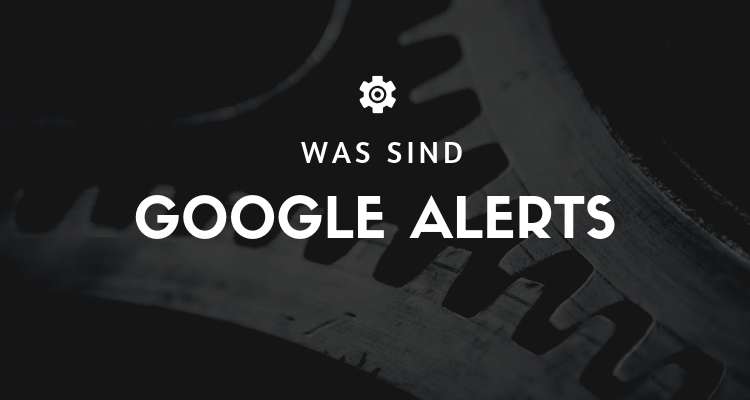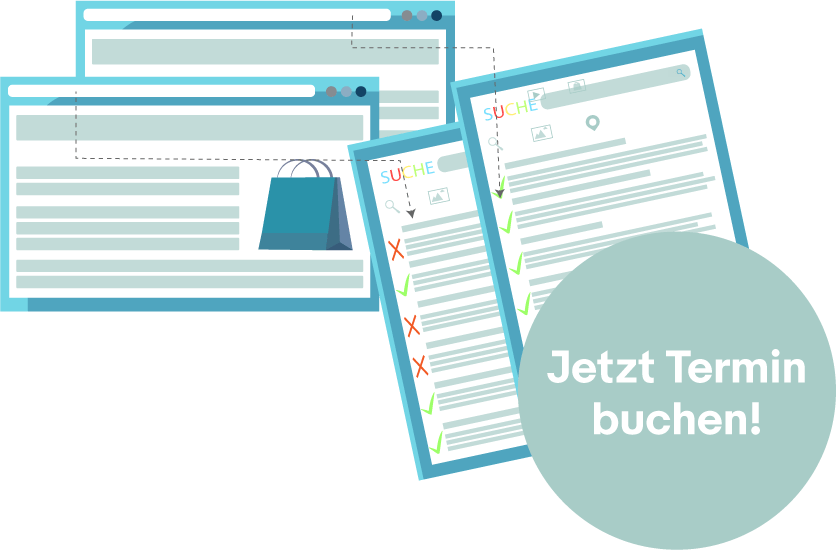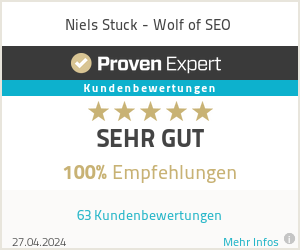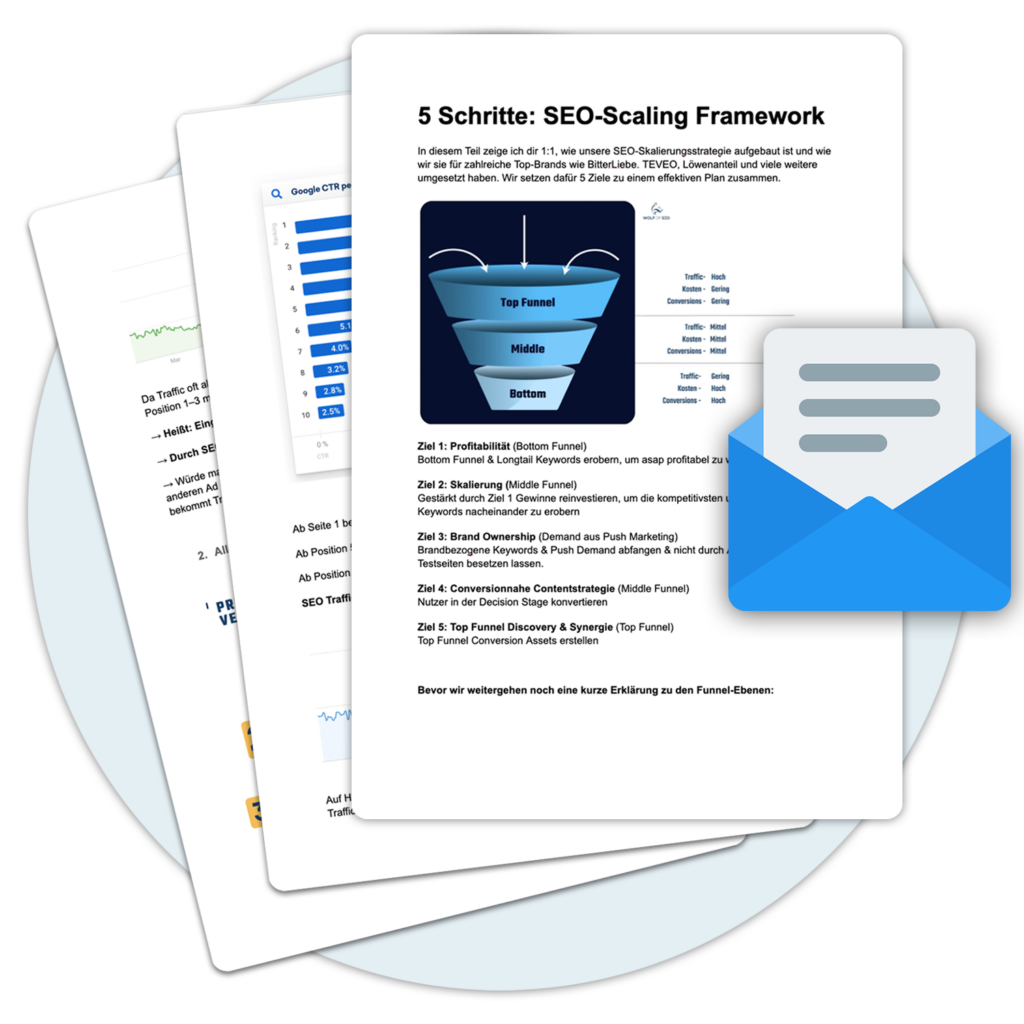
Google Alerts - What is it?
Google Alerts is a free service from Google. Its function is to notify you when a new page is indexed that has a Keyword which you have specified in advance.
The Notification However, you will not receive it immediately, as it last a few days can until Google indexes new pages. For many marketers, the use of Google Alerts but almost as good as getting real-time updates on important topics from around the web. If you often search for current and relevant keywords, you can Google Alerts use. This way you will achieve the same goal, but much more efficiently.
Using it ensures that you will not get results for your Keyword missed, even if they do not appear on the first pages of Google.
Advantages
Alerts offers users some advantages, especially for those who want to be up to date on certain topics. Users can be notified when new results appear for a certain search term, which makes it easier to stay informed about current developments without having to manually search for new results.
Here are a few reasons why it's worth it, Google Alerts to use:
- Time savingYou don't have to search for new content that might be of interest to you. Instead, you'll get the results sent directly to you, saving you time and effort.
- Current information: With Google Alerts you always stay up to date and ensure you have the latest information on a topic.
- Personalized notifications: You can change the settings of Google Alerts customize to get notifications only from certain websites or in certain languages. You can also customize the frequency of notifications to get them daily, weekly or monthly.
- Free of charge: Google Alerts is completely free and anyone can use it as long as they have a Google account.
Disadvantages
Google Alerts is a useful tool, but it also has some drawbacks. For example, the notification feature is not always reliable, which might cause users to miss new results. Also, users can specify only a limited number of search terms, which can make it difficult to get a wide range of information.
Here are some disadvantages that exist when using Google Alerts must be observed:
- No control over the results: Google Alerts sends notifications about all new content that matches your search term or phrase. However, you have no control over what results you receive, and it's possible that you'll receive notifications about content that isn't relevant to you.
- No automatic categorization: Google Alerts does not automatically sort results into categories, which means you may receive notifications about content that is not of interest to you.
- Possibly too many notifications: If you use very specific search terms or phrases, you may receive too many notifications. This can be overwhelming and make it difficult to distinguish the important results from the unimportant ones.
- No possibility to customize notifications: You can customize the frequency of notifications and the type of notifications, but you can't directly customize the results. For example, if you only want to receive notifications about articles from specific authors or websites, you can't do that with Google Alerts do
Use cases
Alerts is a useful tool that can be used for a variety of use cases. For example, it can be used to keep up to date with developments in the industry, changes in competitors, and breaking news. It can also be used to be informed about new products and services, price changes and events.
Google Alerts - What can you do with it?
Google Alerts Has many potential applications for marketers. Here are a few ways you could use this tool:
1. follow the mentions of important names
You may want to keep track of who is talking about you, your boss, or someone else online. With Google Alerts you can Set up alerts for the namesthat you want to follow. You will be informed about all mentions in a timely manner. This is a good way to keep track of your standing online.
2. track your brand
Regardless of whether positive or negative: judge with Google Alerts Set alerts that notify you when people are talking about your business online.
3. follow your competitors
Always have an overview of new developments of your closest competitors
4. monitor your keywords
Alerts helps you to manage your Keyword-Strategy to strengthenin which it shows you how your competitors use their keywords. This can help you find and use more relevant keywords.
5. create links
Whenever your company, product or service is mentioned in a blog or a public question and answer forum like GuteFrage, you've got with Google Alerts the valuable opportunity to make a Backlink to create. Furthermore you can Google Alerts as a link building tool by setting up alerts for inquiries about your product or service.
For example, if your company sells mechanical pencils, you should track the phrases "where to buy mechanical pencils" and "best mechanical pencils".
More use cases for alerts
Here are some options for what to Google Alerts could use:
- Market observation: Alerts can be used to track and analyze competitor or industry activity.
- Reputation Management: You can use alerts to stay informed about mentions of your own company, product or brand on the internet
- Latest news: Alerts can be used to keep up to date with the latest news and events.
- Job Search: One can use alerts to stay updated about new job openings or career opportunities.
- Industry Research: Google notifications can be used to find new studies, articles or technical papers on a specific topic or industry.
- Opportunities to Participate: One can use alerts to stay up to date on events, conferences, or other opportunities to get involved.
- Social Media Monitoring: Alerts can also be used to keep up to date with mentions of one's business or brand on social media.
- Personalized messages: You can Google Alerts to receive personalized messages on specific topics or interests.
Setting up Google Alerts - How to set up the service
Google Alerts set up is done quickly:
- Visits https://alerts.google.com/. On this page you can Google Alerts Set up and manage all notifications
- Enter your desired search term into the field
- Click on "Show options" to customize your notifications. You can change the Google Alerts to filter your results by delivery frequency, sources, language, region and quality. You can also use the "Deliver to" drop-down list to specify whether your results should be displayed in your Gmail inbox or your RSS feed.
- The Smart Marketer Guide for Google Alerts - Specify when and how you want to receive your notifications.
- Activate "Create alarm"
Visit the page Google Alertsif you need to manage or update your alarms. You can delete an alarm or change its settings at any time.
Manage Google Alerts
Firstly, to get your Google Alerts you must first go to your Google Account and open the "Google Alerts" menu. Here you can view all your active and inactive Google Alerts Display. When you click on a specific alert, you can edit the settings, such as the search query, the type of results, the language, etc. If you want to add a new alert, you can fill in a form specifying the search query, result type, language and other options.
Secondly, after you have made your Google Alerts set up, you can manage them by clicking the Manage button. Here you can edit the settings, delete existing alerts or change your email address to which the results will be sent. You can also decide whether you want to receive the results immediately or daily.
Thirdly, if you have your Google Alerts you can also select the "Save results" option. With this option you can save the results of your Google Alerts save in a Google Drive folder. You can also specify how long you want the results to be saved and whether you want to receive notifications when new results are available. With this option you can save your Google Alerts manage easily and efficiently.
Example: Google Alerts for an online store
- Trademark monitoring: You can Google Alerts to keep an eye on your own brand. Simply set up an alert for the name of your online store so that you're notified when someone mentions it on the internet. For example, if you have an online store that sells Bitterliebe products, you can create alerts for "Bitterliebe" to receive notifications about new mentions, product reviews or customer opinions. This way you can react to positive or negative reviews and ensure that your store always appears in the best light.
- Competitor analysisSet up alerts for the names of your main competitors. This way you'll be up to date when they launch new products, offer discounts or start other marketing campaigns. By monitoring your competitors' activities, you can adjust your own strategy and ensure that your online store remains competitive.
- Industry trendsCreate alerts for important keywords and trends in your industry. For example, if you sell bitter love products, you could set up alerts for "bitter herbs", "detox" or "digestion". This way, you'll always be up to date on what's happening in your market segment and can expand or adapt your product range accordingly.
- Customer needs: Google Alerts can help you find out what your customers really want and what problems they want to solve. For example, you can set up alerts for questions customers might have about Bitterliebe products, such as "What is the best way to take Bitterliebe?" or "What are the benefits of Bitterliebe?". By understanding your customers' questions and concerns, you can better tailor your product offering and marketing strategy.
- Content-Marketing: Use Google Alertsto collect ideas for blog posts, social media content or newsletters. By setting up alerts for relevant topics and keywords, you will regularly receive new ideas for content that could be of interest to your target group. This way you can Content strategy always up-to-date and appealing. For example, you could write a blog post about the health benefits of Bitterliebe products or share a recipe for a Bitterliebe smoothie on your social media channels.
Conclusion
Google Alerts is like having a little spy constantly snooping around the web for you and letting you know as soon as someone talks about a certain topic. Handy, isn't it?
What's cool about it?
- Brand monitoringImagine you have a café called "Sonnenschein Café". By Google Alerts you'll know immediately when someone talks about your café online - whether it's a review, a blog post or a newspaper article. This allows you to respond directly to feedback or even find new business partners and customers.
- Competitive analysis: You can not only set alerts for your own name, but also for your competitors' names. Practical, isn't it? So you always know what's going on at the "Moonlight Café" across the street!
- Keeping an eye on trendsAre you in the fashion industry? Then set an alert for "Summer fashion trends 2023" and stay up-to-date.
- Linkbuilding: If you set an alert for certain keywords related to your business, you can discover new opportunities for guest posts or collaborations.
What could be better?
Sometimes it feels like Google Alerts overlooked something. So, while it's a powerful tool, it's not infallible. Sometimes you get results that aren't super relevant, and sometimes the tool might even miss relevant mentions.
The big picture?
Google Alerts is like a Swiss Army knife for anyone who works in the digital space or just wants to stay informed. It's free, super easy to use, and can help you stay ahead of the curve - whether it's brand reputation, competitive analysis, or trend spotting. But as with anything, don't rely on it alone. It's one tool of many in your SEO arsenal.
In summary: Imagine Google Alerts like your little digital detective that helps you stay up to date. A real gamechanger, if you ask me! 😉






